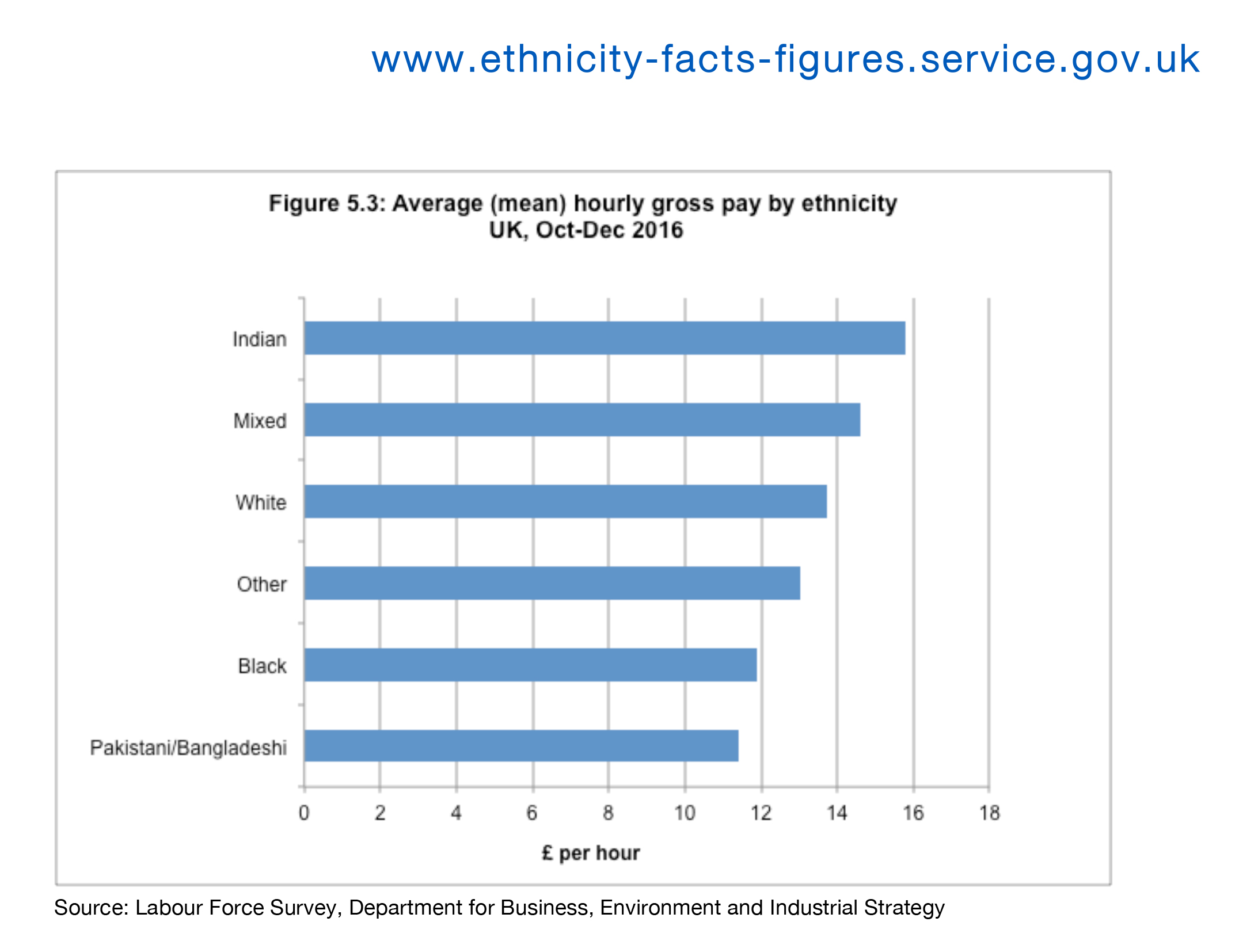
Elham Asaad Buaras
The Government’s long-awaited audit on British society has shown that Black, Asian and minority ethnic (BAME) Britons are more likely to be low paid, on benefits and victims of crime.
According to the database released on October 10, BAME Britons earn £2 per hour less than their white counterparts.
Among the findings is data highlighting that the unemployment rate among BAME people – currently at 8 percent – is nearly double that of white Britons, which stands at 4.6 percent.
The gap is even larger when looked at geographically, with unemployment of BAME people in the North at 13.6 percent, compared with 9 percent in the South.

The database also shows that unemployment rate for BAME’s nearly double that of white Brits, 8 percent compared to 4.6 percent.
While two in three white adults own their home, only two in five of householders from any other ethnic group do.
The figures on hourly earnings show that last year, the average white worker made £13.75 with black Britons earning £11.88 and workers of Pakistani or Bangladeshi origin on £11.42.
That suggests that over the course of a year, white employees are raking in around £4,000 more each than non-whites.
The audit also shows Asian households will be £11,678 worse off overall by 2020, compared with a fall of £6,199 across the decade for white families.
The audit also showed a glaring disparity in the application of law and order. The average length of a prison sentence for Black and Asians is 23 to 24 months while whites get 18 months for the same offence.
Black men are also three times more likely than white men to be arrested, with approximately 44 in 10,000 black men arrested as compared to the corresponding figure of 15 for white people. They are also six times more likely to be stopped and searched by the police than white people.
The audit also found White working class children are victims of long-standing racial “injustices” which see them struggle to get on in life. The research found that white pupils from state schools had the lowest University entry rate of any ethnic group.
The project was launched by Prime Minister, Theresa May, in a bid to end the injustice of different ethnic groups being treated differently by society.
“People who have lived with discrimination don’t need a government audit to make them aware of the scale of the challenge. But this audit means that for society as a whole – for the Government, for our public services – there is nowhere to hide,” said May.
She added, “These issues are now out in the open. And the message is very simple: if these disparities cannot be explained then they must be changed. Britain has come a long way in my lifetime in spreading equality and opportunity. But the data we are publishing today will provide the definitive evidence of how far we must still go in order to truly build a country that works for everyone.”
Previously published data included in the new survey shows that black people are six times more likely than whites to be stopped and searched by police.
But when cases come to court, white suspects are more likely to be convicted than those from other racial groups – suggesting that more non-whites are being charged with crimes which they didn’t do.
Asian people are more likely to be happy with the way people in their local area get on, with 85 percent saying they have good community relations compared to 81 percent in the population as a whole.
Speaking in the Commons shortly after the audits launch, First Secretary, Damian Green, described the project as a “resource which tells us how well we’re doing as a society”, adding: “We hope this website will contribute to a better and well-informed debate on ethnicity in our society.”
He said the Government has already agreed to take action “with partners to address the ethnic disparity highlighted by the audit”.
However, the audit was criticised by some activists and politicians, Home Office Shadow Minister, Afzal Khan, said the probing questions that the data throw up remain unanswered. “Why are ethnic minorities still disadvantaged in access to public services, what are the Government going to do about it now that the audit has revealed the extent of the problem,” he asked.
He also asked why the religious discrimination was omitted from the audit.
“Why have they left out religious discrimination, such as that against Muslims, Jews, Christians, Sikhs and others?” asked Khan.
While former London Deputy Mayor, Munira Mirza, called the Government’s approach “crude and tendentious” that could “harm the very communities they are aspiring to help”. In an open letter to The Times, Mirza and other signatories say: “All too often statistics are misused in a way that casts minorities as victims of racism and ‘white privilege’.”
However, Communities Secretary, Sajid Javid, refuted these arguments against the audit. He said: “I think there will be people out there today taking note of this, whether they are from black, minority ethnic backgrounds or not, and thinking this is exactly the kind of thing they want their government to do.”